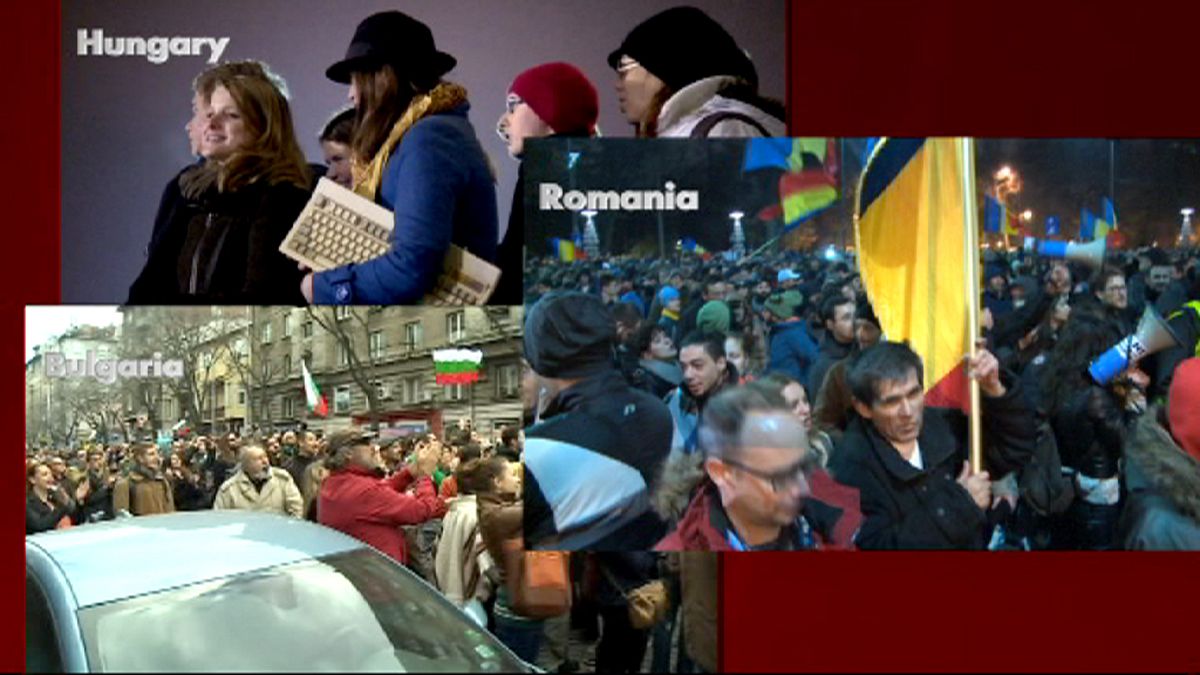Eastern Europe is seeing a growing people’s opposition to traditional government, using the Internet. Could this be an e-revolution in the making?
Experts point to political weakness and social strife in countries such as Hungary, Romania and Bulgaria, where political structures are not showing the flexibility to meet evolving challenges; political parties are fragile and state institutions are deeply affected by corruption.
Social media activist Lucian Mandruta, who saw his Facebook following soar during Romania’s presidential poll, says the Internet makes it easier for people to challenge authority, such as Romanians objecting to inadequate venues for voters abroad.
Mandruta said: “What we had was the little screens that people have while watching TV. We were the second screen and then the second screen got the big screen; the second screen beat up the big screen. The second screen was actually more powerful than the bigger screen in front of them, because in front of them, on the bigger screen there was no interactivity, there was just people telling you what to think, how to vote, how to behave.”
More than 10,000 Hungarians rallied for what the organisers called a ‘Day of Public Indignation’, in Budapest on Monday. They demanded democracy and condemned corruption. Recent demonstrations were sparked by a government bid to impose a tax on Internet traffic. This rally bridged generations.
One participant said: “Facebook is also an important part of our generation nowadays, not only the young generation.”
Her friend said: “More and more old people are organising themselves on Facebook. We are proud and very happy about it.”
The organisers of the protests — a collective of students, activists and artists — have said that they tapped into a groundswell that could now be channelled against the government’s policies. Zsolt Varaday, for instance, the founder of a Hungarian social network system once bigger than Facebook, has been working on plans for a common site for those who want to change their country’s direction.
Bulgaria’s last government was forced to resign as thousands of citizens protested against high electricity prices and corruption. Doubts remain over how long the new coalition will hold together, as voters in the former-Communist states of eastern Europe increasingly use social media to prevent any one group or individual from dominating.
